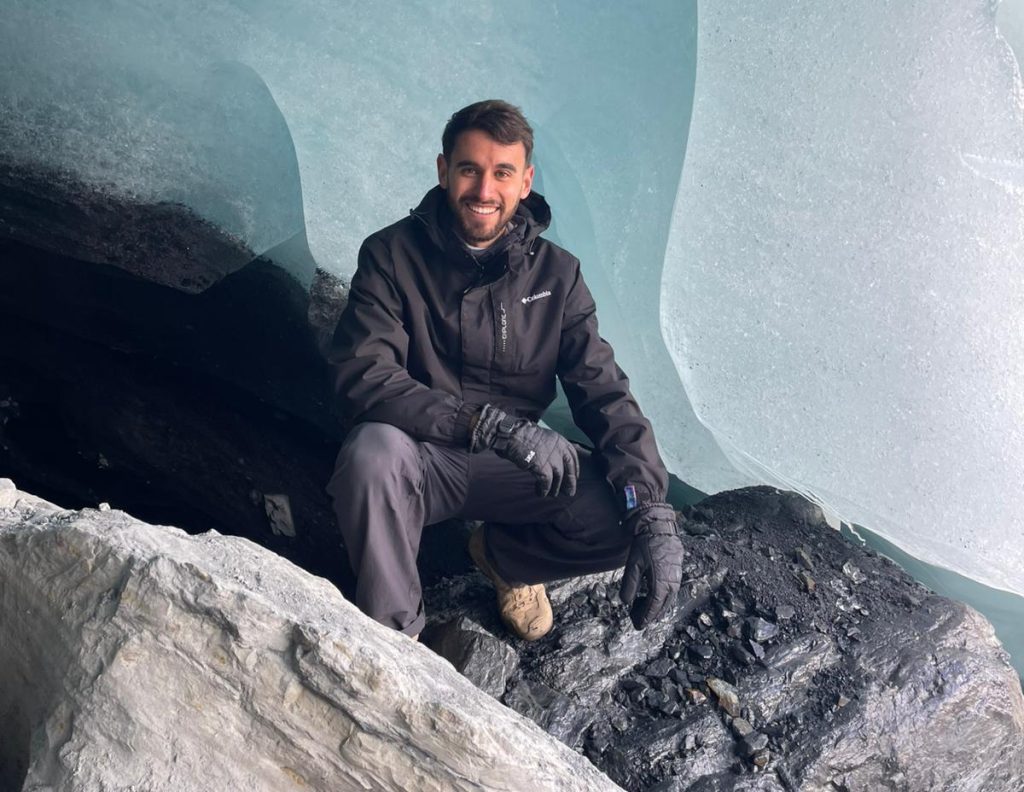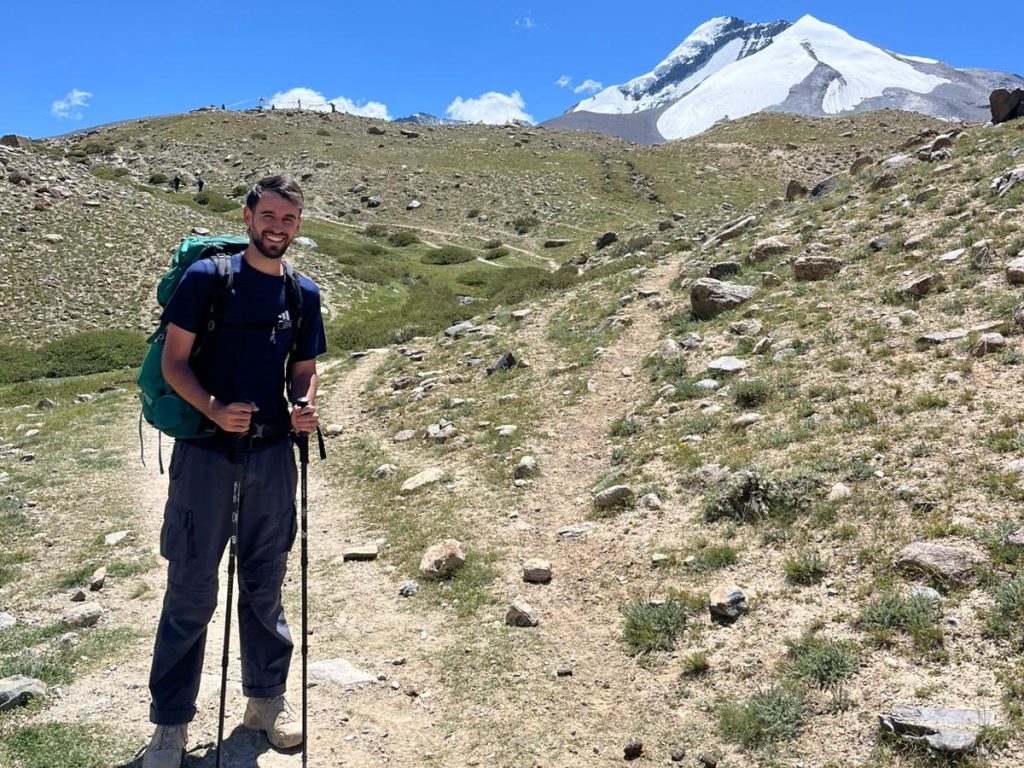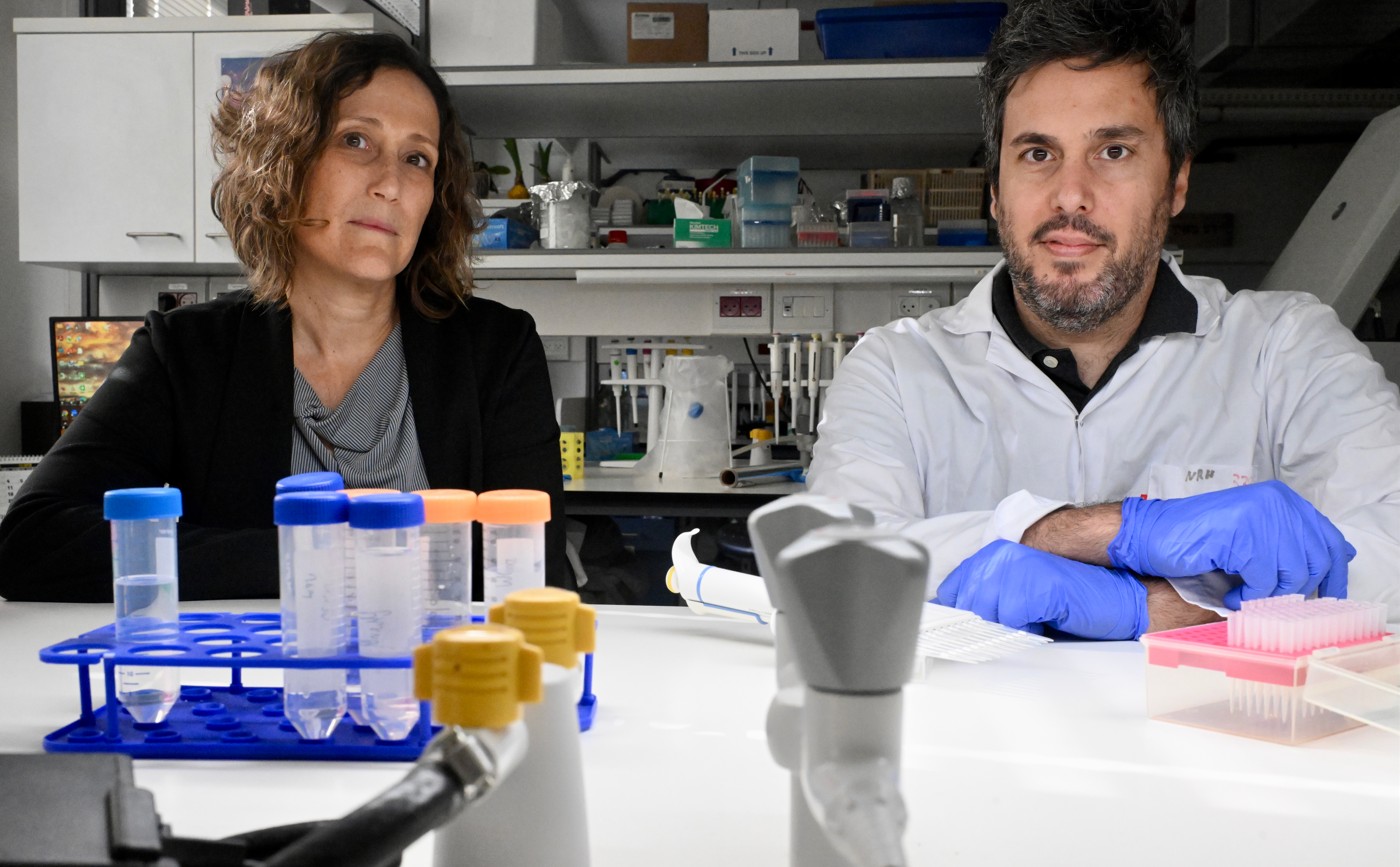Serving the Nation, Excelling at the Technion
Despite hundreds of reserve service days, Sagie Dekel, a student in the Faculty of Data and Decision Sciences’ Excellence Program, managed to achieve academic success that earned him the title of President’s Excellence Award recipient
Sagie began studying at the Technion three days after his discharge from the army, thus giving up the traditional “post-army trip.” Instead, he made himself a promise: every summer, travel. The war disrupted that plan in the past two years; in 2023, he returned from abroad when the war broke out, and last year, he gave up the trip altogether. But this summer, he was indeed in South America. This interview took place over Zoom, with him in Bolivia, between completing his bachelor’s degree and before beginning his master’s studies.

Twenty-five-year-old Sagie grew up in Modi’in, served as a Human Resources Officer in the IDF, and began studying Data Engineering at the Technion immediately after his release. “During my service, I became interested in data science, machine learning, and artificial intelligence, and decided to study data engineering. Why at the Technion? First, because this was the first place to open a degree program in data engineering, and second, because I knew the level here would be high and I’d leave with solid tools. My three years here have confirmed that—beyond the high standards and demanding coursework, the combination of fields taught in the faculty is excellent.”
At the end of his first year, based on his achievements, he was invited to join the faculty’s Excellence Program, which aims to expose outstanding students to relevant research early in their undergraduate studies, shorten the degree from four years to three, and create a community of high-achieving students. “It was a great offer,” he says, “because it allowed me to finish my degree in three years, and just as importantly, it gave me significant exposure to the world of research, where I discovered how fascinating it is to me. When I came to the Technion, I never imagined I’d pursue a master’s degree, but now I’m starting one, after recently submitting a paper for publication with my advisors, Prof. Oren Kurland and Prof. Moshe Tennenholtz, in collaboration with Tomi Mordo and Omer Madmon.”
The paper deals with Competitive Search, which Sagie explains as follows:
“In today’s reality, we all understand the economic importance of high ranking on Google, for example. In our paper, we present a way to build an agent that learns to generate content that ranks highly in a competitive environment, particularly online. Using language models and reinforcement learning techniques, we developed an innovative algorithm for training such an agent.”

Sagie has completed almost 300 reserve duty days so far, serving in the same regular battalion where he was an HR officer—the Tzabar Battalion of the Givati Brigade.
“Unlike reservist brigades, I can usually study at the Technion during the week, even while serving, because I do my reserve days on weekends. It definitely makes it difficult to invest in personal life, friendships, and family, since we’re mobilized most of the time—but I’m well aware that it’s even harder to be a combat reservist, especially as a student. This is really an opportunity for me to thank the combat reservists, who work so hard under risk and sacrifice so much.”
He looks back positively on his three years at the Technion:
“There’s no doubt these were the most meaningful years of my life. Through the Excellence Program, I was exposed to new fields, met many researchers and research groups, and realized that this world speaks to me—so I’ll definitely continue at least to a master’s degree. I’d like to thank my advisors, Prof. Oren Kurland and Prof. Moshe Tennenholtz, and Dr. Gila Molcho, Academic Projects Manager and Coordinator of the Excellence Programs in the faculty, for the opportunity.”
When asked about how the Technion supports reservist students, he says:
“At the institute level, many significant accommodations have been made to help us. At the faculty level, we received a support framework, and most lecturers understand well what reserve duty means and take it into account. In addition, a spontaneous group of reservists formed, helping one another simply out of understanding that our challenges are similar. The combination of these three aspects—the Technion’s, the faculty’s, and the social one—is excellent.”



